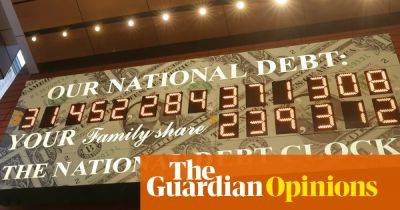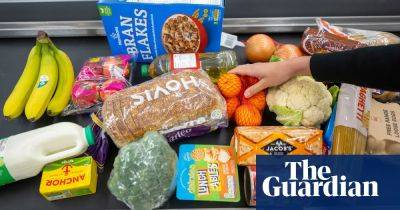Australia might not be in a recession but households are about to feel as if they are
I t is a good time to be a big grocery company, or a mining company, or a travel company, or a bank or … well, let’s be honest: as the Bureau of Statistics reported when inflation took off at the start of last year, “Australian businesses benefited from rising prices”.
And they have continued to benefit in the year that has followed.
Whether it is Jonathan Barrett’s report showing increased profit margins for Coles and Woolworths or the UBS research showing those two companies’ prices have risen faster than inflation, or Qantas being on track to deliver a record profit, or banks recording stonking profits as interest rates have risen – those wanting to argue Australian companies have not used the inflationary environment to increase prices are starting to look a bit naive.
One of the worst things about economic debate in this country – and, to be honest, most others as well – is the view that company profits are a pure gain for the economy. More profits are always better.
Sign up for Guardian Australia’s free morning and afternoon email newsletters for your daily news roundup
But when it comes to retail, banks, travel, or even eventually mining companies through the goods and energy that are produced with their minerals, those profits come from somewhere.
And they come from consumers.
Households spend, businesses record profits and employ workers, paying them more wages. At least that is how it is supposed to go.
And so when companies make record profits, we are reassured by politicians and business groups that all is well.
But that neat function is not sustainable if wages and household incomes are failing to keep up with prices.
If the graph does not display click here
Because people are the economy, not companies. And at a
Read more on theguardian.com
 theguardian.com
theguardian.com

















